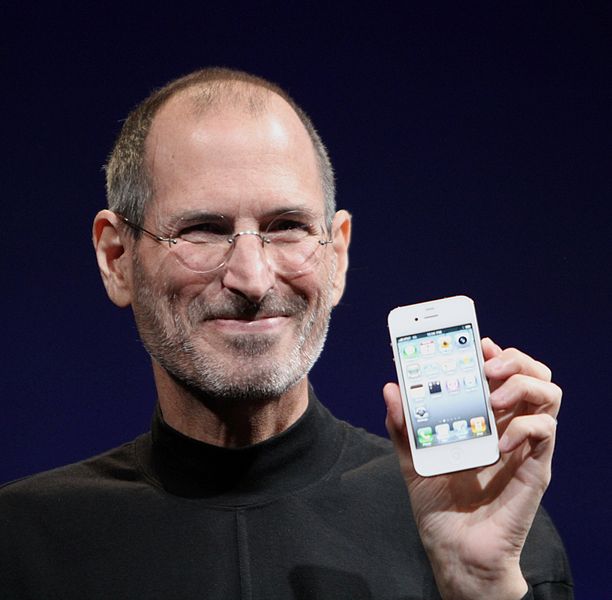So Apple had a disappointing quarter, even though it was surprisingly good compared to last year and the company is paying its first dividend to investors since 1995. Naturally, investors punished the company by stripping more than five percent from its stock price in after hours trading.
It’s times like these that I’m tempted to ask: Aren’t you people ever satisfied?
“Yes, only in the U.S. could this be called a bad quarter, but Wall St. is Wall St,” said Gartner analyst Michael Gartenberg, in a tweet.
I had a similar reaction reading about the curiously “mixed” legacy of Apple cofounder Steve Jobs in Wired. According to this story, some people are troubled by Jobs’ reputation as an overly-demanding tyrant almost as much as they’re inspired by his legacy as a genius entrepreneur.
Apparently these folks are doubtful about whether they should emulate the man who created two incredibly successful companies, rescued one of them after others nearly wrecked it, then went on to completely rebuild a handful of industries, including personal computers, MP3 players, cellphones, media distribution, and tablet computers. Why? Because he could be kind of demanding.
Make no mistake, Jobs casts a long shadow across Silicon Valley and the rest of the tech world. Apple is like the pole star for innovation here, a role that Hewlett-Packard once held but relinquished years ago in a string of ill-conceived acquisitions and embarrassing scandals. It is both a model for other companies to emulate and a vast source of technological talent and wealth that helps feed the entrepreneurial ecosystem.
But it’s not so easy to find anyone who is actually disturbed by Jobs’ jerky side. Most everyone recognizes, I think, that Jobs was a flawed human being, and that in some ways those flaws were also essential to his success. His uncompromising nature made him a terrifying figure to some; Apple employees were often afraid to get in the elevator with him.
“He just had the volume turned up really high,” said Don Thorson, the chief executive and co-founder of Swipp, when I asked him about his experiences working with Steve Jobs. Thorson was at Apple from 1984 to 1989, and while he didn’t work closely with Jobs, he viewed first-hand how the man’s intensity led others to excel.
“For me and my colleagues, he gave us permission to be our very best,” Thorson said. “His default position was that there’s something left in the tank. And you should give it to me, because I’m the guy who’s going to appreciate it.”
Aaron Levie, the founder of Box, told a similar story to Wired. “My lesson from Jobs,” Levie said, “is that I can push my employees further than they thought possible, and I won’t rush any product out the door without it being perfect.” That approach, Levie acknowledged, comes with some “collateral damage,” presumably hurt feelings and damaged relationships.
“Steve Jobs was the one guy who looked at that big picture and could see how to transpose it to one that suited him, his company, and his customers,” Chris Tolles, the CEO of Topix, told me. Tolles competed with Jobs in the early days of music distribution online, when Tolles was at AOL Music and Jobs was just starting to build the iTunes Music Store. “He was able to work with partners and break the Gordian knot of getting music into the hands of consumer and setting the seeds of making Apple the world’s most valuable company, whilst doing exactly what the music business feared the most, yet in turn probably giving them the best deal they were going to get.”
Most people choose not to pursue work with the same intensity. I think that’s wise. Not everyone has the same consuming passion to change the world, and without that, a Jobs-like intensity could easily turn into pointless tyranny. If your goal is simply to make a billion-dollar company, I suggest you put the tantrums on a shelf and focus on what really matters. (Hint: It’s not money.)
Similarly, Marissa Mayer’s plan to take a “few weeks” of working maternity leave strikes me as nuts. If I did that, I’d regret it forever. I already spend too much time away from my kids. But you know what? I don’t have Mayer’s technical talent, obsessive drive, or apparent lack of a need for sleep.
I think we should let the Marissa Mayers and the Steve Jobs of this world be as crazy as they need to be in their efforts to make a dent in the universe. But expecting everyone to work around the clock while placing relentless demands on all those around them? That’s the real tyranny.
Subscribe to Dylan’s Desk and get this column in your inbox every week! Want to see what you’re missing? Check out my past columns.
Top photo: Matt Yohe, via Wikipedia
VentureBeat's mission is to be a digital town square for technical decision-makers to gain knowledge about transformative enterprise technology and transact. Learn More

